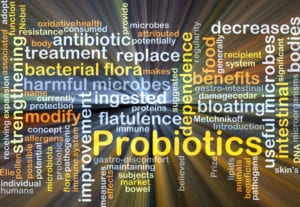Written by Angeline A. De Leon, Staff Writer. Of the 118 study participants, those who supplemented for eight weeks with Lactobacillus brevis (L. Brevis) SBC8803 significantly improved skin hydration compared to the placebo group.
 Through their colonization of the gastrointestinal tract, lactic acid bacteria contribute to the maintenance of immune function and overall physical health. Studies suggest that ingestion of lactic acid probiotics such as lactobacilli can improve digestion, reduce allergies, and support healthy cholesterol levels 1-3. In particular, heat-killed Lactobacillus brevis (L. Brevis) SBC8803 has been found to suppress dermatitis 4 and reduce transepidermal water loss (TEWL, a measure of skin barrier function)5 by restoring and balancing the production of key immune cells6. Based on observed effects of L. brevis SBC8803 on skin hydration conditions in animal models, investigators in Japan conducted a preliminary study looking at the capacity of L. brevis SBC8803 to improve skin barrier functions in humans.
Through their colonization of the gastrointestinal tract, lactic acid bacteria contribute to the maintenance of immune function and overall physical health. Studies suggest that ingestion of lactic acid probiotics such as lactobacilli can improve digestion, reduce allergies, and support healthy cholesterol levels 1-3. In particular, heat-killed Lactobacillus brevis (L. Brevis) SBC8803 has been found to suppress dermatitis 4 and reduce transepidermal water loss (TEWL, a measure of skin barrier function)5 by restoring and balancing the production of key immune cells6. Based on observed effects of L. brevis SBC8803 on skin hydration conditions in animal models, investigators in Japan conducted a preliminary study looking at the capacity of L. brevis SBC8803 to improve skin barrier functions in humans.
In a randomized, double-blind, placebo-controlled study 4, a total of 118 volunteers (aged 21-59 years) were recruited for participation. Subjects were matched for age and TEWL levels and randomly assigned to receive either 25 mg or 50 mg of heat-killed L. brevis SBC8803 or matching placebo for 12 weeks daily. Skin condition was evaluated based on TEWL levels (measured on left forearm, neck, and lower eye region under constant temperature and humidity), corneal hydration status (measure of skin conductance), and subjective assessment of facial and body skin using a questionnaire.
After 8 weeks of treatment, results showed a significant decrease (–15.1%) in TEWL at the neck (p = 0.05) for the group treated with 25 mg of L. brevis SBC8803, as compared with placebo. In addition, hydration levels at the neck (based on corneal hydration measurements) somewhat increased for the 25 mg group, relative to placebo (24%, p = 0.06). Analyses of subjects with low habitual intake of lactic fermentation products (less than once per week) revealed significantly increased levels of corneal hydration at the neck for the 50 mg group and lower eye for the 25 mg group following the 12-week study period (p < 0.05 for both).
Overall, findings demonstrate safe and beneficial effects of heat-killed L. brevis SBC8803 as a strategy for improving skin hydration, particularly in those whose consumption of lactic fermentation products is low. Further studies are needed to determine appropriate dosage levels for individuals with variable skin conditions.
Source: Ogawa M, Saiki A, Matsui Y. Effects of oral intake of heat-killed Lactobacillus brevis SBC8803 SBGL88(TM) on dry skin conditions: A randomized, double-blind, placebo-controlled study. Experimental and Therapeutic medicine. 2016; 12: 3863-3872. DOI: 10.3892/etm.2016.3862.
© 2008 Pharmaceutical Society of Japan
Posted October 23, 2017.
References:
- Belkaid Y, Oldenhove G. Tuning microenvironments: induction of regulatory T cells by dendritic cells. Immunity. 2008;29(3):362-371.
- Zyrek AA, Cichon C, Helms S, Enders C, Sonnenborn U, Schmidt MA. Molecular mechanisms underlying the probiotic effects of Escherichia coli Nissle 1917 involve ZO‐2 and PKCζ redistribution resulting in tight junction and epithelial barrier repair. Cellular microbiology. 2007;9(3):804-816.
- Jones M, Martoni C, Prakash S. Cholesterol lowering and inhibition of sterol absorption by Lactobacillus reuteri NCIMB 30242: a randomized controlled trial. European journal of clinical nutrition. 2012;66(11).
- Segawa S, Hayashi A, Nakakita Y, Kaneda H, Watari J, Yasui H. Oral administration of heat-killed Lactobacillus brevis SBC8803 ameliorates the development of dermatitis and inhibits immunoglobulin E production in atopic dermatitis model NC/Nga mice. Biological and Pharmaceutical Bulletin. 2008;31(5):884-889.
- Horii Y, Kaneda H, Fujisaki Y, et al. Effect of heat‐killed Lactobacillus brevis SBC8803 on cutaneous arterial sympathetic nerve activity, cutaneous blood flow and transepidermal water loss in rats. Journal of applied microbiology. 2014;116(5):1274-1281.
- Segawa S, Nakakita Y, Takata Y, et al. Effect of oral administration of heat-killed Lactobacillus brevis SBC8803 on total and ovalbumin-specific immunoglobulin E production through the improvement of Th1/Th2 balance. International journal of food microbiology. 2008;121(1):1-10.

